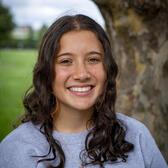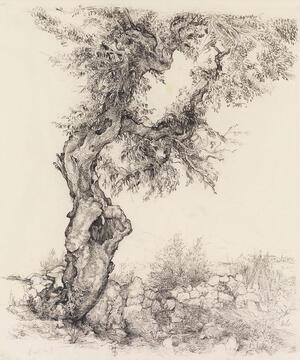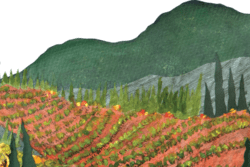The Wise Child of Climate Activism
When I asked my mom how she relates to the climate crisis in the context of her Judaism, she paused for a minute and then responded, “I’ve never really thought about it. I guess I’m the simple child.” She offered this as a joke, referring to the four children of the Passover Seder.
This is probably the case for many Jews, even those who are very politically aware. They care about both environmentalism and their Jewish identity, but they don’t necessarily consider the ways that they fit together.
Others would respond to my question like the wicked child, saying something like, “I don’t know and I don’t care. I like using lots of air-conditioning and taking long showers.” To them, environmentalism has nothing to do with Judaism. While they may read the news and have strong political views, they don’t incorporate their religious beliefs into their relationship with the environment, and vice versa. They sacrifice their values for comfort, not the other way around.
The third child is the one who does not know how to ask. She feels overwhelmed by the climate crisis, and it seems so big in scope that she doesn’t know what to do about it, so she doesn't do anything at all.
The last child is the wise one. The wise children are people like Ellen Bernstein, who has devoted her life to understanding and teaching others about how Judaism can solve the climate crisis. Bernstein started the organization Shomrei Adamah, Keepers of the Earth, which is dedicated to Tikkun Olam, repairing the world, and to ending climate injustice through Judaism.
I think that most people are a mix of all four children: composting, but still getting picked up from the train station by their mothers because they’re too tired to walk half a mile; a vegetarian of eight years who throws away plastic clamshell containers emptied of blackberries and fresh arugula weekly.
Okay, so that’s me.
And as a (mixture of all four children) teenage climate activist growing up in a world so full of environmental challenges brought on by our predecessors, Bernstein’s work and her inclusion of Judaism in her climate activism stands out to me.
Ellen Bernstein’s work centers on the concept of Tikkun Olam. The Shomrei Adamah worldview is that “repair of the world depends first on finding our way back to a relationship with the natural world.” That Bernstein would see environmentalism and Judaism as complimentary is not surprising to me.
Judaism's foundation is that of an agricultural society, a balance of giving and taking from the Earth. I think that this mindset is necessary for everyone to adopt in this dire time of need. To fall short is to risk the fate of Pharaoh.
Rabbi Arthur Waskow draws clear parallels between the plagues and today's ecological disasters: “Today, the Pharaohs are giant corporations: big coal, big oil, and big natural gas.” And his solution, like the solution of climate activists around the globe, is to bring the community together.
This is exactly what Shomrei Adamah is doing; they work to bring the Jewish community together to address environmental issues. They've hosted their own ecological Tu B’Shvat seder annually since 1988, and they work to change the framing for Tu B’Shvat to become a “Jewish Earth Day,” creating programs and outside opportunities for learning on this topic.
With sea levels rising more rapidly than ever before, natural disasters occurring more intensely and frequently, and the loss of ecological biodiversity (among many other things), Ellen Bernstein’s work and message are more important than ever. Bernstein wrote, “the land does not belong to us: we belong to it.” If we don’t work to repair the damage we have done, it will lead to further disaster. I hope that more and more people will begin listening to the wise children in our world.
This piece was written as part of JWA’s Rising Voices Fellowship.







